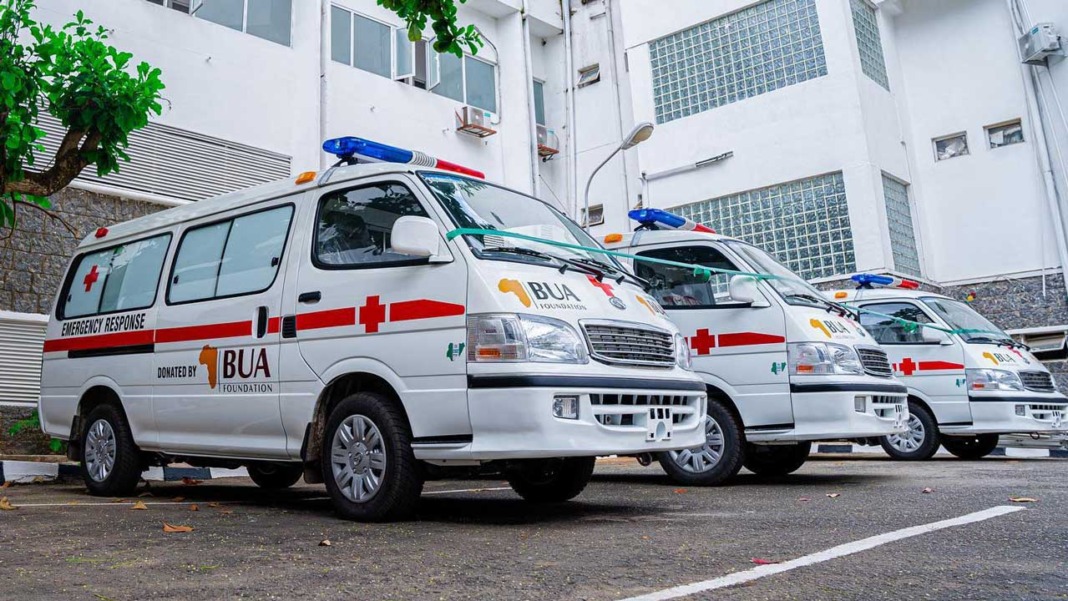Nigeria is facing a critical call to prioritize emergency services within its healthcare system, as experts and stakeholders argue that swift and efficient response to emergencies is essential for saving lives and enhancing healthcare outcomes. The urgent need for a comprehensive plan comes amid growing concerns about the current state of emergency medical services in the country.
Emergency situations can occur suddenly and unexpectedly, ranging from accidents and injuries to acute illnesses and life-threatening conditions. The ability to provide immediate and effective medical interventions during these critical moments is crucial. However, Nigeria’s healthcare system currently faces significant challenges in delivering prompt emergency care.
In response to this pressing issue, experts and advocates are calling on the government to make emergency services a top priority. By doing so, Nigeria can address the shortcomings and limitations in its current emergency response system, ultimately improving the overall healthcare landscape and saving countless lives.
One of the primary reasons for the urgent need to prioritize emergency services is the high mortality rate resulting from delayed or inadequate medical attention during emergencies. The lack of resources, trained personnel, and appropriate infrastructure often leads to significant delays in response, exacerbating the risk to patients’ lives and well-being.
By prioritizing emergency services, Nigeria can allocate the necessary resources and funding to develop and enhance emergency response capabilities. This would include investments in infrastructure, such as ambulances, hospitals, and emergency care centers, as well as the recruitment and training of specialized personnel who can handle critical situations with expertise and efficiency.
Moreover, prioritizing emergency services would require the development of standardized protocols and guidelines to ensure a consistent and coordinated response across the country. Clear and well-defined procedures would help streamline the efforts of emergency response teams, hospitals, and other healthcare facilities, resulting in a more efficient and effective emergency healthcare system.
The impact of prioritizing emergency services extends beyond immediate life-saving measures. By responding swiftly to emergencies, Nigeria can minimize long-term complications and disabilities that may arise from untreated or delayed medical interventions. This approach would not only alleviate the burden on patients and their families but also reduce the long-term healthcare costs associated with preventable complications.
Furthermore, a robust emergency response system would enhance public trust and confidence in the healthcare system. Knowing that prompt and reliable emergency care is readily available would provide reassurance to individuals and communities, instilling a sense of security and faith in the healthcare services provided.
While the challenges in implementing such a prioritization plan are substantial, stakeholders emphasize the necessity of collective efforts from the government, healthcare providers, and communities to achieve this critical goal. Adequate funding, policy reforms, and ongoing collaboration are crucial to ensure the success of prioritizing emergency services’s healthcare system.
Investments in infrastructure are imperative to improve emergency response times. Ambulances equipped with state of the art medical equipment and staffed with skilled personnel must be strategically stationed across the country, ensuring timely access to emergency care. Additionally, establishing and equipping emergency care centers within hospitals can provide specialized care to critically ill or injured patients, enabling quicker interventions.
Addressing the shortage of trained personnel in emergency care is another vital aspect. Healthcare providers should be offered specialized training programs that focus on managing emergency situations effectively. This training should encompass essential skills such as triage, resuscitation techniques, trauma care, and advanced life support. By enhancing the expertise of healthcare professionals, the quality of emergency care provided can be significantly improved.
Standardization of protocols and guidelines is crucial for consistent emergency response. The government should collaborate with healthcare experts to develop and implement standardized protocols that outline the best practices for emergency care. These protocols should cover areas such as pre-hospital care, transport, and communication between emergency response teams and hospitals. By adhering to standardized procedures, the efficiency of the emergency response can be maximized, and the overall quality of care can be enhanced.
Furthermore, public awareness and education campaigns are necessary to ensure that individuals understand the importance of timely emergency care. Initiatives aimed at educating the public about when to seek emergency medical assistance, how to access emergency services, and the potential consequences of delayed care can help save lives. Additionally, promoting community-based emergency response systems, such as training community members in basic life support techniques, can further strengthen the emergency response network.
In conclusion, the prioritization of emergency services’s healthcare system is an urgent and necessary step toward saving lives and improving healthcare outcomes. By allocating resources, enhancing infrastructure, training healthcare professionals, and implementing standardized protocols, Nigeria can develop a robust emergency response system capable of delivering timely and effective care. The collaboration of the government, healthcare providers, and communities is vital in realizing this vision and ensuring that emergency services become a cornerstone of Nigeria’s healthcare system.




👍🏻